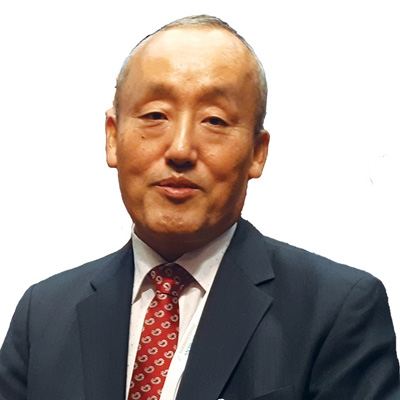Safe and sound vaccines at top of WHO priority list
Vietnam has launched the nationwide COVID-19 vaccination campaign, making it the largest-ever approach in preventing and fighting the pandemic. What do you think about this move?
 |
| Dr. Kidong Park, representative of the World Health Organization (WHO) in Vietnam |
Safe and effective vaccines are a game-changing tool, and critical to ending the pandemic. The launch of the nationwide vaccination campaign in Vietnam is a historical milestone in the war against COVID-19 and I commend the government for this innovative and strategic approach.
As more vaccines arrive in the country, and the rollouts continue in provinces, districts, and communes, this will help reduce hospitalisations and save lives.
However, I want to remind everyone that vaccines are not a silver bullet and alone won’t stop the community transmissions. We need to ensure that people continue to follow public health measures implemented by the government.
People need to continue to apply 5K principles, that is use masks consistently, be in ventilated spaces, practice hand hygiene and respiratory etiquette, and avoid crowding. These measures continue to be extremely important, even if one is vaccinated, especially in provinces with ongoing community transmissions.
To successfully implement the campaign, preservation and transportation of vaccines plays an important role. What comments do you have on the quality of local cold storages? Are these sufficient to ensure vaccine quality?
To ensure the quality, safety, and efficacy of vaccines, a chain of coordinated, temperature-controlled environments has to be in place to precisely store, manage, and transport vaccines. We call this a cold chain.
The cold chain system of Vietnam had been evaluated periodically and monitored closely against WHO performance standards. In early 2021, the system finished its assessment with a very high score.
For a mass vaccination campaign, given the unprecedented needs, the government is mobilising all sectors, including in securing vaccine-specific storages and transport equipment to increase the capacity.
Before utilising this equipment; however, it must be properly installed. Massive trainings must be provided by the Ministry of Health (MoH) to share and gain the required knowledge and practices for personnel who will be tasked to work on this equipment and manage the vaccines.
COVID-19 is raging more seriously in Southern Vietnam. What should Vietnam do to control the outbreak, and what lessons could be learnt from other countries?
There are critical response principles that we learned in managing outbreaks and emergencies that have been reinforced based on lessons and experiences in the COVID-19 response in Vietnam and in many countries. Controlling outbreaks is not only the responsibility of the health sector. It needs the coordinated actions from all sectors with good compliance and support of the public.
Thus, a robust implementation of public health measures such as rapid identification of cases supported by laboratory testing, contact tracing, isolation and quarantine, is key. Moreover, social distancing measures, including targeted lockdowns, should be applied based on the updated risk assessment in consideration of the local context.
Next, the communication to the public should be consistent and credible to ensure that people understand and apply necessary preventive measures, for example the 5K principles. Finally, a strategic vaccination deployment with priority groups, in addition to public health measures, is crucial to responding effectively to the outbreak.
Vietnam is on the right track in managing the outbreaks in the country, including in the remaining hotspots. The WHO believes that Vietnam can control this outbreak and will continue to take a balanced approach in achieving the dual goal of pandemic management and economic development.
However, as the current outbreak is more challenging and will take more time to control, it requires persistent and collective efforts following the whole-of-society approach.
The WHO has been working closely with the MoH and will continue to do so to provide the most updated scientific evidence and support the government in its decision-making process.
What the stars mean:
★ Poor ★ ★ Promising ★★★ Good ★★★★ Very good ★★★★★ Exceptional
Themes: Healthcare Platform
- PM outlines new tasks for healthcare sector
- Opella and Long Chau join forces to enhance digestive and bone health
- Hanoi intensifies airport monitoring amid Nipah disease risks
- Cosmetics rules set for overhaul under draft decree
- Policy obstacles being addressed in drug licensing and renewal
Related Contents
Latest News
More News
- Hanoi intensifies airport monitoring amid Nipah disease risks (January 29, 2026 | 15:21)
- Tet event in Japan celebrates success of 14th National Party Congress (January 25, 2026 | 10:04)
- 14th National Party Congress wraps up with success (January 25, 2026 | 09:49)
- Congratulations from VFF Central Committee's int’l partners to 14th National Party Congress (January 25, 2026 | 09:46)
- List of newly-elected members of 14th Political Bureau announced (January 23, 2026 | 16:27)
- 14th Party Central Committee unanimously elects To Lam as General Secretary (January 23, 2026 | 16:22)
- List of members of 14th Party Central Committee announced (January 23, 2026 | 09:12)
- Highlights of fourth working day of 14th National Party Congress (January 23, 2026 | 09:06)
- Press provides timely, accurate coverage of 14th National Party Congress (January 22, 2026 | 09:49)
- Press release on second working day of 14th National Party Congress (January 22, 2026 | 09:19)

 Tag:
Tag:




















 Mobile Version
Mobile Version